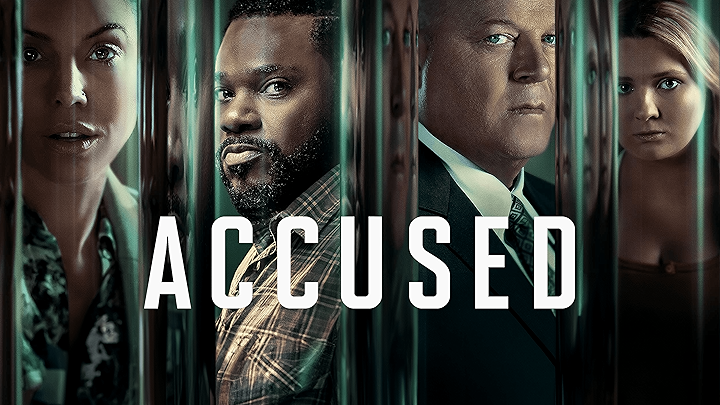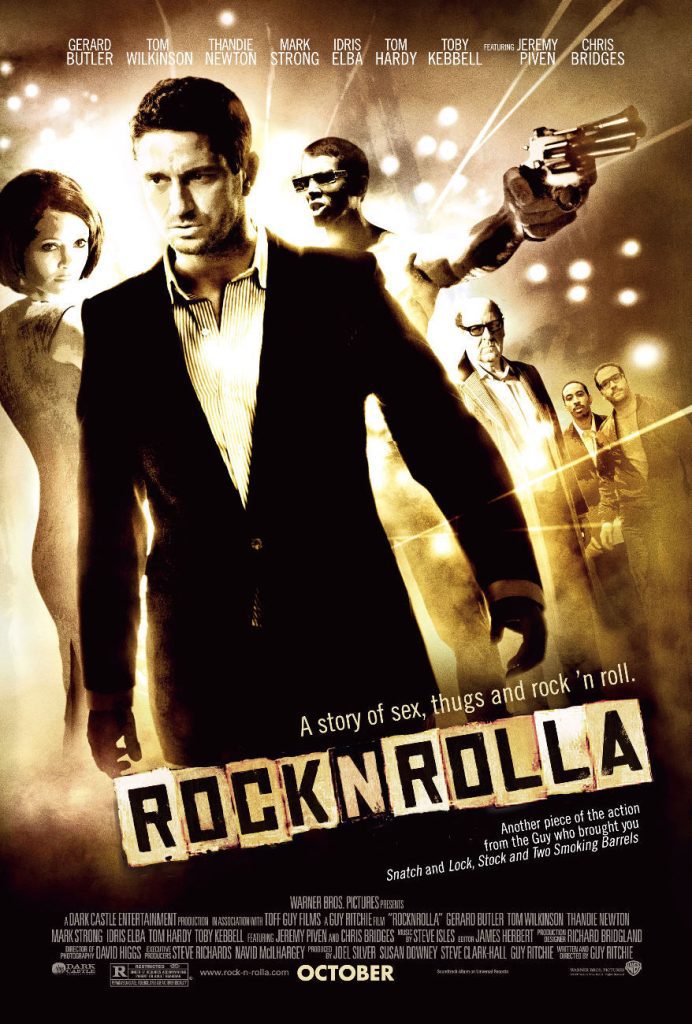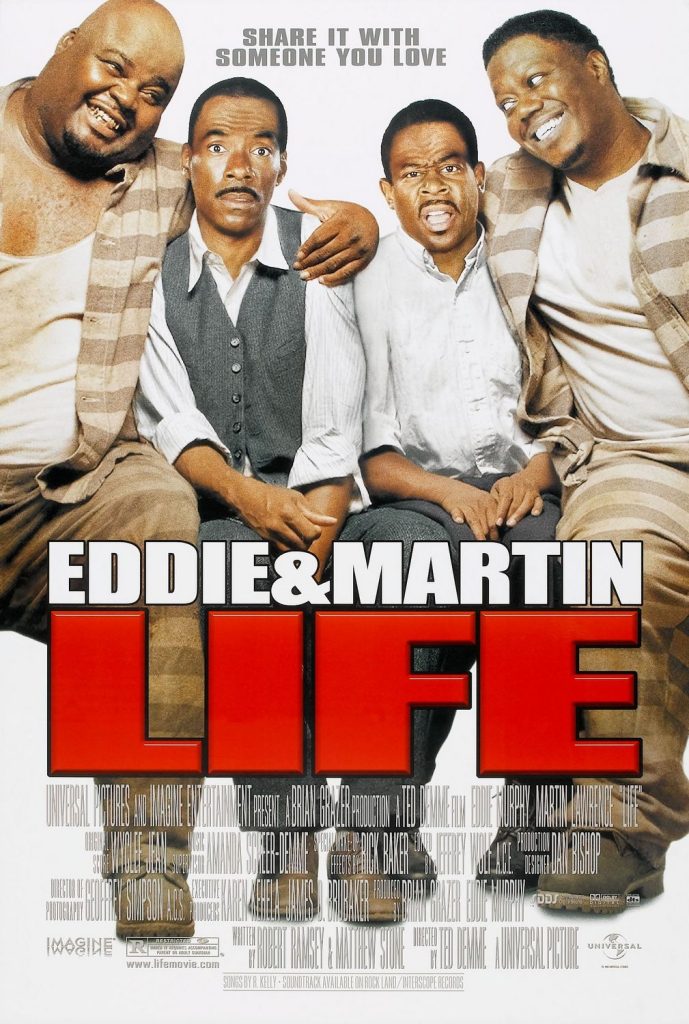
In recent years, anthology television shows have been making a bit of a comeback. Well, sort of. While shows like True Detective, American Horror Story and Fargo don’t change up the cast/setting every week, they do mix things up each season. Across the pond, well-regarded British TV creator Jimmy McGovern has been working to keep the episodic anthology format alive in a variety of creative ways. First he gave us The Street, which looked in on the lives of a wide variety of individuals living on a street in Manchester. Using this basic setting as connective tissue, he delivered an incredibly diverse array of compelling, self-contained stories. His similarly-structured follow-up project was Accused, an anthology crime series which emphasizes human emotions rather than “whodunnit” sensationalism.
At the beginning of each episode, we’re introduced to a person who is on trial for committing a crime. At the end of each episode, the person is declared to be guilty or not guilty, and given a sentence. In-between, McGovern elaborates on what sort of crime the person committed and why they committed it. It’s a show which demonstrates extraordinary sympathy for most of its crooks and killers, examining a wide array of people who are pushed past their breaking point before committing some sort of criminal action. Some of the people are falsely accused, some are not. In every case, the characters are well-drawn and realistic. The show is often horrifically bleak—the combination of critical acclaim and low ratings is entirely understandable—but well worth your time.
All ten episodes of Accused‘s two-season run are included in this set. They are:
Willy’s Story: Christopher Eccleston (Doctor Who) stars as a plumber who simultaneously finds himself facing a marital crisis and serious financial problems. The show’s first episode is also one of its best thanks to brutally insightful writing and Eccleston’s knockout performance. Those who only know the actor from his underwhelming roles in popular blockbusters like 28 Days Later and Thor: The Dark World may be surprised at what an extraordinary actor he really is.
Frankie’s Story: The tale of a young soldier who cracks after enduring endless humiliation and abuse from one of his superiors (Mackenzie Crook, The Office). This controversial episode inspired protests from members of the British military, who claimed that it was reckless and irresponsible in its portrait of military life. While the episode certainly owes a debt to Full Metal Jacket, its examination of military abusiveness is undeniably potent.
Helen’s Story: A middle-aged mother (Juliet Stevenson, The Hour) is informed that her son has been killed in an accident at his workplace. When she attempts to find out more information, she enters a world of insensitive legal complications. This episode is quieter and gentler than the two which precede it, but benefits strongly from the performances of Stevenson and Peter Capaldi (The Thick of It) as a married couple trying to find ways to cope with their devastating loss.
Liam’s Story: A taxi driver (Andy Serkis, Rise of the Planet of the Apes) with a serious gambling problem and a severely disabled wife seeks a fresh start with a younger woman. This one’s incredibly intense stuff, with Serkis eliciting our sympathy as a man who’s truly in a difficult situation and inspiring our hatred as a man who’s willing to do some horribly creepy things for entirely selfish reasons. It’s the best live-action performance I’ve seen from Serkis to date, if also one that made me want to take a shower afterwards.
Kenny’s Story: A young girl has been molested, and her angry father (Marc Warren, Wanted) enlists a couple of his friends to help beat the man who did the deed to a pulp. Things get complicated when 1) the man dies in the hospital and 2) the father learns that he may have killed the wrong person. “Kenny’s Story” is arguably the most conventional tale of the six-episode first season, but still offers more than a few strong moments. If I have one complaint, it’s that the final act of this saga just sort of fizzles out after an intense build-up.
Alison’s Story: A woman (Naomie Harris, 28 Days Later) is raped by her spiteful husband (Warren Brown, Luther), and then is forced to battle him for custody of their children. It could be argued that this tale is the least realistic of the bunch, as some pretty wild plot twists get tossed into the mix as it proceeds, but the emotional conviction of Harris’ performance is so strong that the melodramatic plotting becomes a non-issue. Gripping (and often horrifying) stuff.
Mo and Sue’s Story: A woman who runs a hair salon (Anne-Marie Duff, Notes on a Scandal) finds herself in an extraordinarily difficult situation after learning that her son (Thomas Brodie-Sangster, Game of Thrones) has committed a murder. This installment is fueled by deep sadness, as its examination of gang violence builds to a tough conclusion that provides little emotional catharsis.
Stephen’s Story: A young man (Robert Sheehan, Misfits) grows suspicious and jealous after his widowed father marries a younger woman. Sheehan’s frantic performance is excellent, and the installment does an excellent job of keeping the viewer in the dark as to whether his conspiracy theories are rooted in reality or mere paranoia. Again: sad, mournful dramatic material.
Tracie’s Story: By day, Simon (Sean Bean, Game of Thrones) is a serious-minded, mild-mannered English teacher who keeps to himself. At night, Simon transforms into Tracie, a lively, cheerful transgendered woman with a sparkling personality. Tracie’s life takes a happy turn when she begins conducting a romance of sorts with a married man (Stephen Graham, Boardwalk Empire) who shares a deep connection with her. Bean’s sensitive, funny, touching performance is one of the strongest pieces of acting the series has to offer, and he draws a host of compelling differences between Simon and Tracie without overplaying either side. While some have contended that the episode represents a misunderstanding of transgendered life in general, I don’t think it’s attempting to offer a portrait of transgendered life in general. Like every episode of the series, it’s a heart-wrenching portrait of a specific individual.
Tina’s Story: This one stands apart from all the rest, as it’s the only episode of the series which allows certain characters to make a return appearance. The tale begins with Stephen (from “Stephen’s Story,” naturally) in prison, but the focus is on the officer (Anna Maxwell Martin, Philomena) tasked with guarding him. When a series of horrible incidents occur, the officer finds herself questioning the nature of her job. As dark as this tale gets at times (rape and suicide are among the topics it addresses), it’s ultimately a bit more optimistic than most of these tales, allowing the series to conclude with a sigh of relief. After all of the misery, it’s well-earned.
Accused: Series 1 & 2 offers a fine standard-def transfer. The visual palette tends to be gloomy and overcast in most of these episodes, and you’d rarely mistake the series for a big-screen drama, but the craftsmanship is generally solid and detail is strong. The Dolby 2.0 Stereo track is perfectly adequate, too, conveying the moody underscore and dialogue with clarity. No supplements are included.
Accused certainly isn’t light viewing, but it’s often extraordinarily powerful stuff worthy of comparison with some of the best American television of recent years. The plotting wander a bit over-the-top on occasion, but the emotional undertow of each installment is nearly impossible to deny. Highly recommended.
For more movies visit Soap2day.







